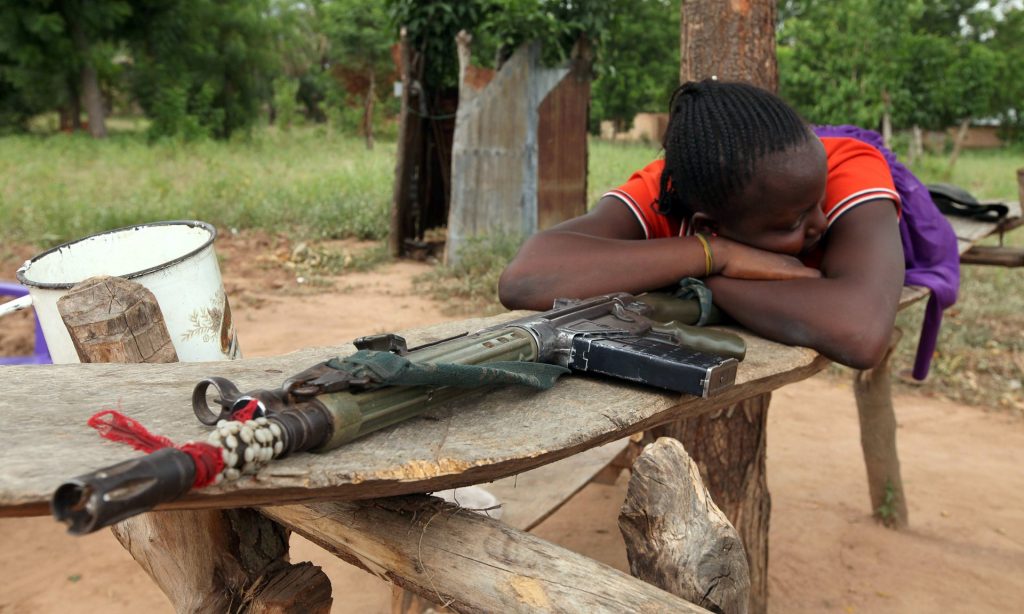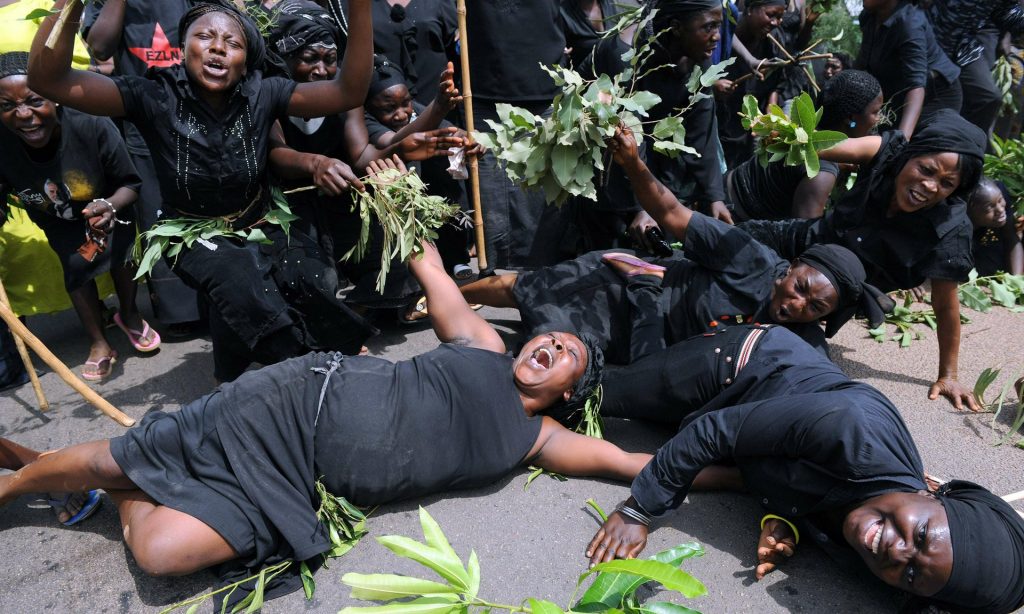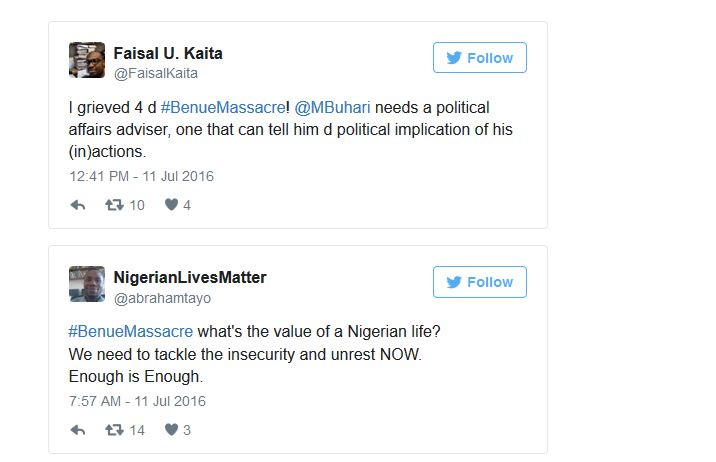
Photograph: Emmanuel Arewa/AFP/Getty Images
More than 80 people are thought to have been killed in a series of brutal attacks in Benue State in central Nigeria, which locals say were perpetrated by groups of nomadic herdsmen.
Although northern herdsmen have fought with locals over land and grazing rights for decades, what was a low-level conflict has recently spiralled into a full-blown crisis, leading to claims the men are “the new Boko Haram”.
On Monday #Benuemassacre began trending on social media on Monday as Nigerians criticised the government’s delayed response to the escalating conflict.
Reliable statistics on the total number of people killed are scarce, but according to the Global Terrorism Index, 1,200 people were killed in 2014 by herdsmen, and in 2015 the Index claimed they were “the fourth deadliest terror group in the world”.
But according to locals in Kogi, central Nigeria, the state’s new commercial airport was built on land previously used by herdsmen for cattle grazing. Across Nigeria, growing urbanisation, new infrastructure and the rising value of land has made life harder for nomadic groups.
Sola Tayo, an associate fellow at Chatham House, says the characterisation of the herdsmen as militants obscures the abuses they also face. “Media reports largely focus on attacks carried out by herdsmen. What is not so widely reported are claims from herdsmen of attacks again them and their communities.
“The current media narrative is of largely Christian settler communities being attacked by rampaging Muslim herdsmen, which is leading to further mistrust and division.”
Sanusi Baffa, chairman of an association of more than 300 Fulani herdsmen in the northern state of Kano, agrees that land scarcity is at the heart of the conflict, not politics or religion. “Since the commonwealth era, herdsmen had their own designated land to graze their cattle. But now much of that land has been taken over by politicians and the government,” he said.
He disputes the characterisation that the herdsmen are the aggressors. “Most of the affected people are the nomads. Our cattle is regularly stolen and killed. We are being persecuted even more because our land is restricted and the government have created this crisis for us.”

Photograph: Pius Utomi Ekpei/AFP/Getty Images
Religious division
Headlines such as “Fulani Militants are more dangerous than Boko Haram” have further framed the herdsmen as an organised, political group.
Matthew Page, a fellow at the Council on Foreign Relations and an analyst on Nigeria for the US State Department, says this designation is widely disputed by Nigeria experts.
“It unhelpfully labels one of west Africa’s largest ethnic groups as ‘terrorist’ based on the criminal acts of some Nigeria-based armed herdsmen. The heinous nature of several of the worst attacks have given domestic media outlets license to portray them as murderers and terrorists,” he said.
While the widespread comparisons to Boko Haram are in part a reflection of the intensity of the conflict, it also plays on the prejudices held in the predominantly Christian south about the northern Muslim regions.
A number of politicians have stoked these divisions. In late May, the governor of Ekiti state, Ayodele Fayose, addressed crowds and vigilantes in an effected community in Ekiti State, and encouraged them to respond violently.
“Terminate their lives! Anywhere you find a cow that is grazing on our ways… we will take them out… Enough of this political herdsmen operating as herdsmen but are Boko Haram, they are coming into south-west gradually, we are going to fight you.”
In Anambra, governor Willie Obianno has commissioned aerial surveillance to keep track of the herdsmen’s movements, while in Enugu, Ifeanyi Ugwuanyi has launched an inquiry to establish the causes behind the attacks.
But in a climate where ethnic sensitivities are heightening, and as the Nigerian economy continues to struggle, the challenge to find a peaceful resolution is becoming increasingly difficult.


